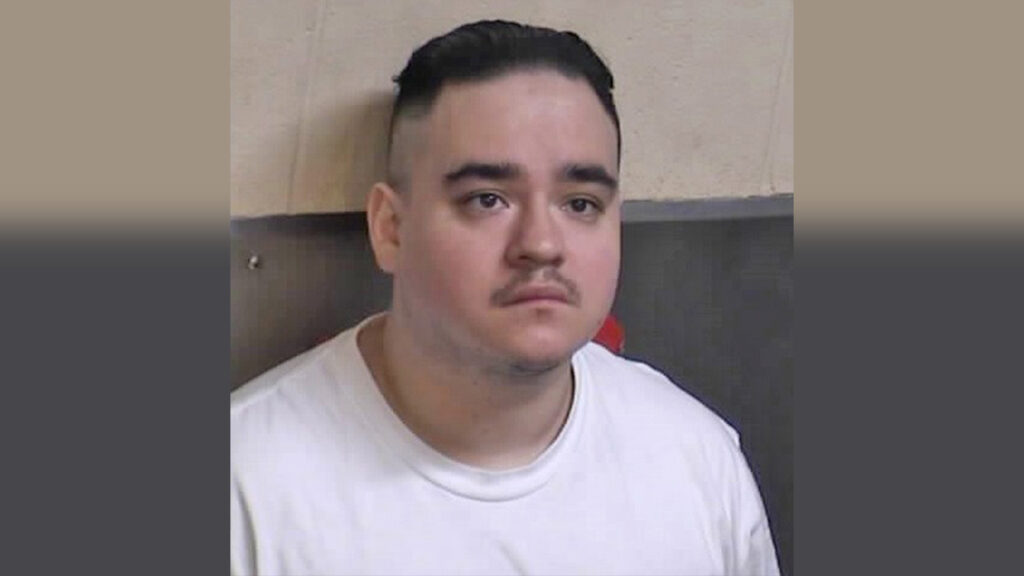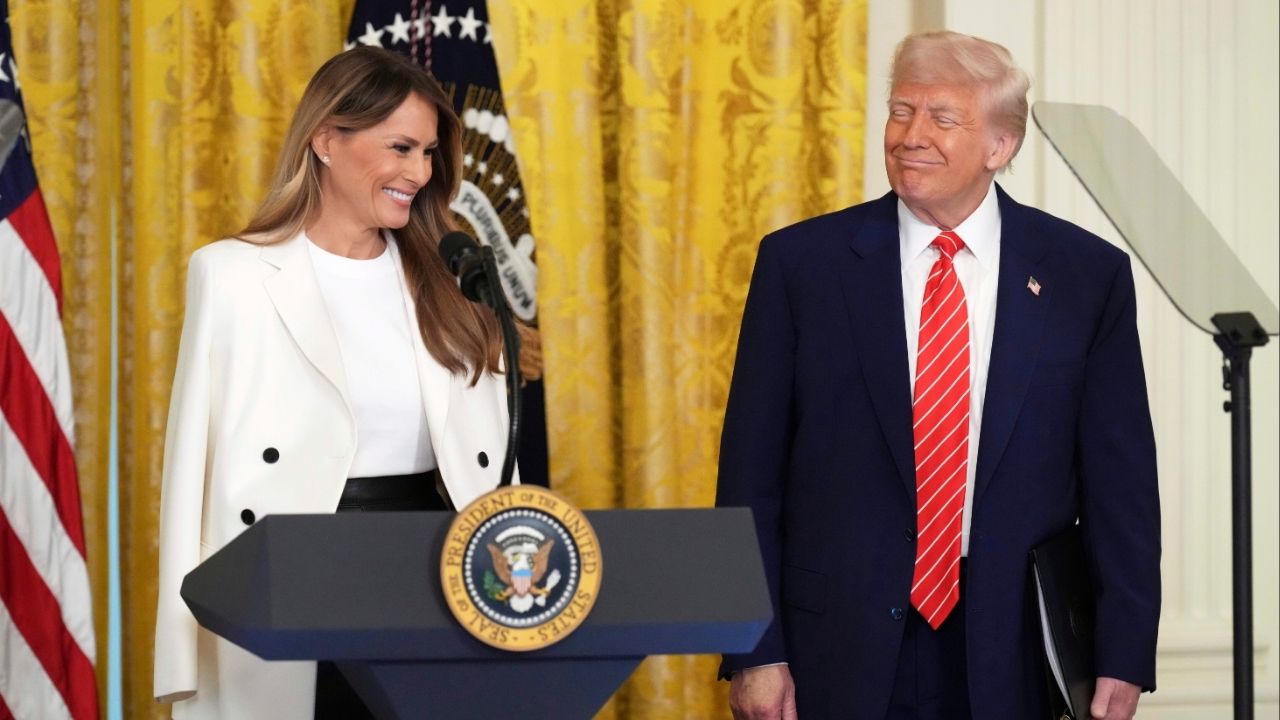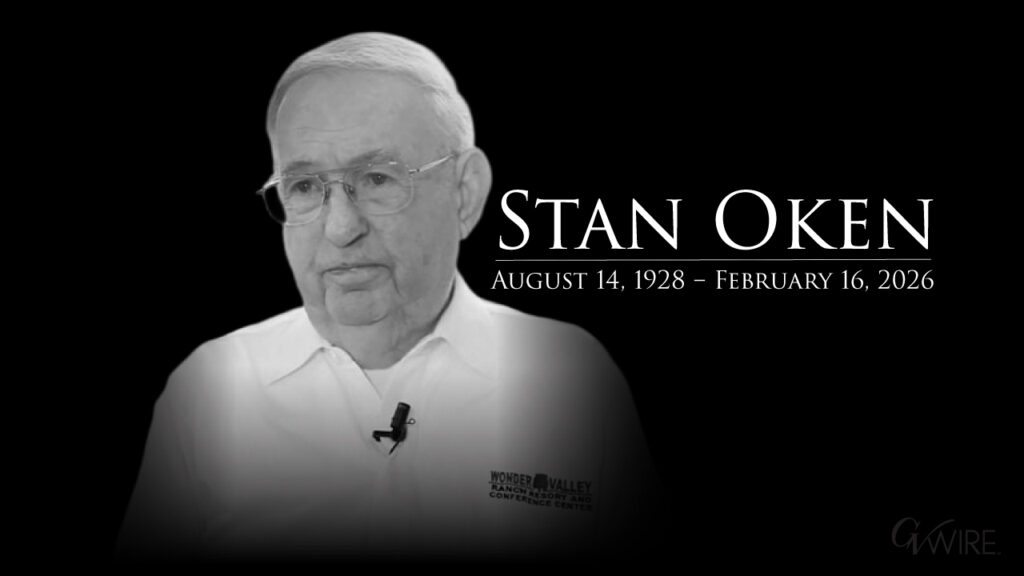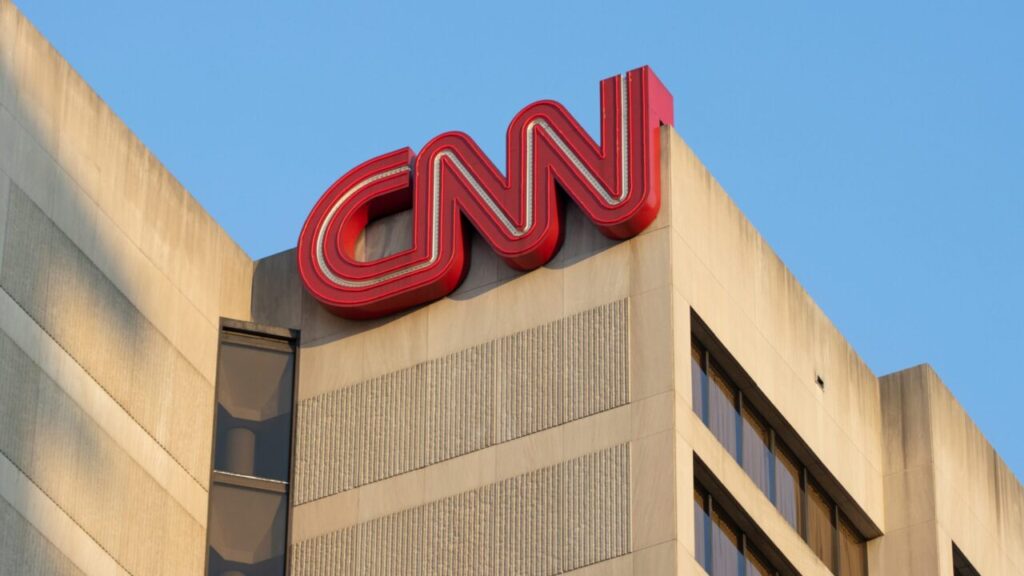President Donald Trump, right, watches as first lady Melania Trump speaks at an event for Military Mothers, Thursday, May 8, 2025, in the East Room of the White House in Washington. (AP/Jacquelyn Martin)

- Trump signs Take It Down Act, a federal crackdown on revenge porn and deepfakes, championed by first lady Melania.
- Law penalizes non-consensual explicit imagery, requires platforms to delete content quickly; critics warn of censorship and privacy overreach.
- Melania Trump revives Be Best campaign, leads bipartisan push to pass online safety bill with backing from Cruz, Klobuchar.
Share
|
Getting your Trinity Audio player ready...
|
WASHINGTON — President Donald Trump and his wife, Melania, on Monday were hosting a signing ceremony for the Take It Down Act, a measure the first lady helped usher through Congress to set stricter penalties for the distribution of non-consensual intimate imagery online, or “revenge porn.”
In March, Melania Trump used her first public appearance since resuming the role of first lady to travel to Capitol Hill to lobby House members to pass the bill following its approval by the Senate.
White House press secretary Karoline Leavitt told reporters earlier Monday that the first lady was “instrumental in getting this important legislation passed.”
The bill makes it a federal crime to “knowingly publish” or threaten to publish intimate images without a person’s consent, including AI-created “deepfakes.” Websites and social media companies will be required to remove such material within 48 hours after a victim requests it. The platforms must also take steps to delete duplicate content.
Many states have already banned the dissemination of sexually explicit deepfakes or revenge porn, but the Take It Down Act is a rare example of federal regulators imposing on internet companies.
The bill, sponsored by Sens. Ted Cruz, R-Texas, and Amy Klobuchar, D-Minn., received overwhelming bipartisan support in Congress, passing the House in April by a 409-2 vote and clearing the Senate by unanimous consent.
Free Speech Advocates Critique the Measure
But the measure isn’t without critics. Free speech advocates and digital rights groups say the bill is too broad and could lead to censorship of legitimate images, including legal pornography and LGBTQ content. Others say it could allow the government to monitor private communications and undermine due process.
The first lady appeared at a Capitol Hill roundtable with lawmakers and young women who had explicit images of them put online, saying it was “heartbreaking” to see what teenagers and especially girls go through after this happens to them. She also included a victim among her guests for the president’s address to a joint session of Congress the day after that meeting.
After the House passed the bill, Melania Trump called the bipartisan vote a “powerful statement that we stand united in protecting the dignity, privacy and safety of our children.”
Her advocacy for the bill is a continuation of the Be Best campaign she started in the president’s first term, focusing on children’s well-being, social media use and opioid abuse.
In his speech to Congress in March, the president said the publication of such imagery online is “just terrible” and that he looked forward to signing the bill into law.
“And I’m going to use that bill for myself, too, if you don’t mind,” he said. “There’s nobody who gets treated worse than I do online. Nobody.”
RELATED TOPICS:
Categories

Exclusive: Warner Bros Inks $110B Deal with Paramount
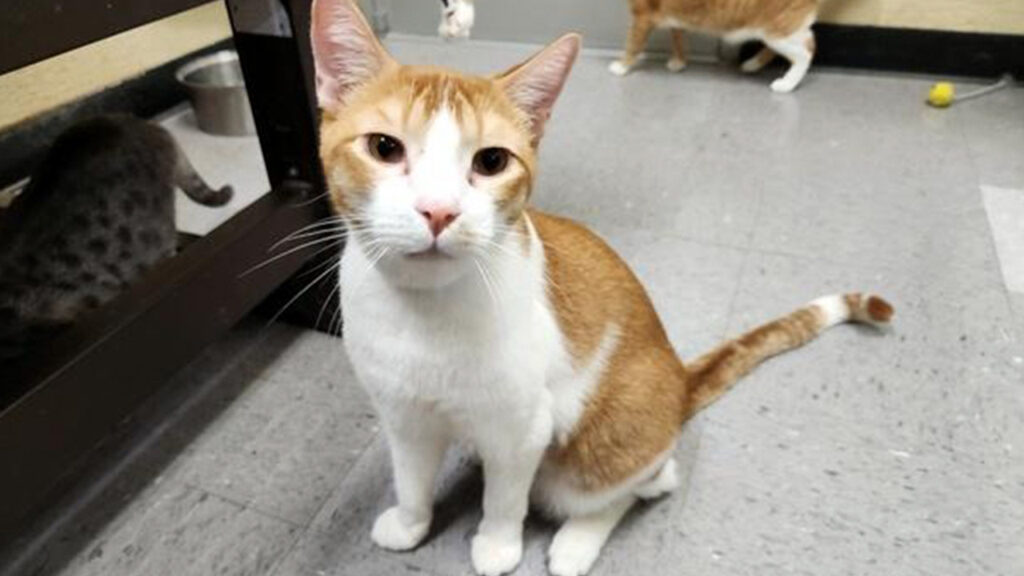
Mac the Cat Is Guaranteed to Spice Up Your Life
